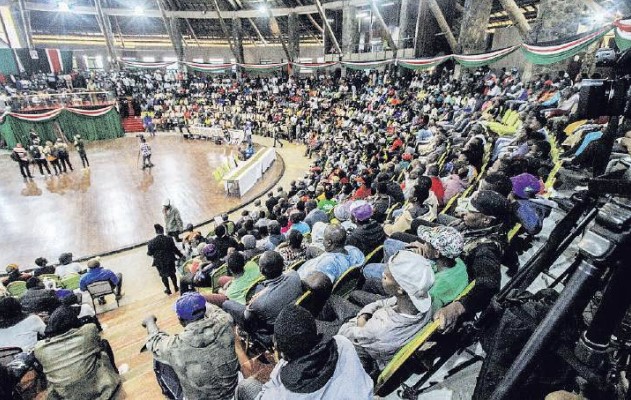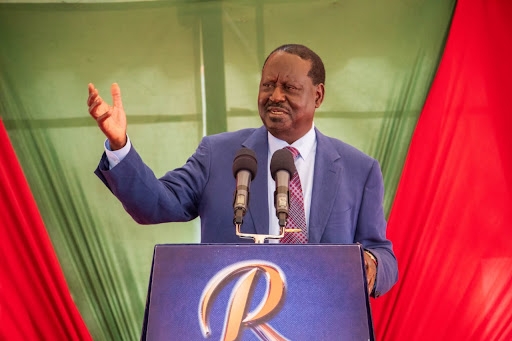

When the 2010 Constitution was passed, a fundamental foundational principle of governance in the name of public participation was passed. Particularly, Articles 10 (2), 118 (b) and 196 (b) mandate that the state and in its governance, legislation and other initiatives, undertake public participation. This principle recognises the sovereignty of the people as expressly depicted in the preamble of Article 1 of the Constitution “We the People”. Public participation brings to life the understanding that the people, in all their diversity, are the ultimate source of all government power, and they have the right to be involved in the decisions that affect their lives.
Contrary to the spirit of the constitution, public participation forums have become exclusive gatherings masquerading as democratic processes, where the state systematically excludes critical voices and sometimes negatively profiles those who dare to make participation effective by taking part and discussing divergent and unpopular views.
To illustrate, I will use the recently concluded public consultations by the task force on gender-based violence, including femicide. The taskforce was appointed by President William Ruto on January 10, to gather information including trends, challenges and recommendations on escalating GBV and femicide concerns. A 2022 report by the Kenya Demographic and Health Survey indicated that nearly 34 per cent of women aged 15-49 have experienced GBV, and femicide (the killing of women because they are women) is increasingly prevalent. About 80 per cent of these abuses occur within the very homes that are supposed to be safe havens.
Unfortunately, women human rights defenders (WHRDs) who have been on the frontline and respond when women and girls need emergency care and support following violations, faced barriers in accessing the consultation forums. They were met with restrictions including "invitation only" requirements, limits of five participants per session and outright denial of access, thus begging the question, are “public” forums increasingly becoming “private”.
These restrictions violate Article 174, which guarantees everyone’s participation irrespective of their age, race, gender, or political affiliation. Public participation means exactly that open access for all citizens, individually or in organised groups.
The WHRDs barred from these forums fight daily for those whose dignity has been taken away, silenced by trauma, victims whose voices were stolen by perpetrators they trusted and those killed simply for being women. These rights crusaders risk their safety to demand justice, yet their participation in critical forums is scrutinised and limited. In my view, this is a classic example of a system designed to protect women and girls actively excludes their strongest advocates revealing a fundamental misunderstanding of both democracy and the crisis at hand.
The recent happenings on the unlawful arrest and detention of Rose Njeri deepen the sad situation. The happenings paint a cruel reality that public participation is not only exclusionary but also bears criminal consequences. Rose Njeri, a software developer, created a website to give feedback to the national Legislature following a call for public participation on the Finance Bill, 2025. Her platform simplified public participation by enabling citizens to read, understand, and submit their opinions directly to Parliament through automated emails exactly what Parliament had requested from citizens.
The government's response? Arrest her.
Njeri was charged with "unauthorised interference with computer system contrary to section 16 of computer misuse and cyber crime act no 5 of 2018." She spent four days in custody before being presented in court, denied bail until following public outcry on social media under the hashtag #ReleaseRoseNjeri.
The above examples expose the contradiction at the heart of Kenya's democratic theatre: participation is welcomed only when it remains ineffective and easily ignored. This progression from excluding advocates at forums to arresting innovator who enhance participation reveals a systematic suppression of civic engagement. If developing tools to enhance democratic participation constitutes a crime, then the state has redefined citizenship itself as a threat to governance with a clear pattern of authoritarian democracy.
True public participation requires genuine accessibility, not performative democracy. Citizens should never fight for entry into forums addressing crises that affect them directly or their communities. Additionally, they should never face arrest for creating solutions that facilitate feedback.
It is imperative that we be reminded that public participation is a prerequisite to democracy and good governance. Not a privilege to be rationed or a crime to be prosecuted. Until we honour that principle, our forums will remain exclusive gatherings that mock the democratic ideals that they should be upholding. We must keep agitating for genuine participation. Participation that is driven by the vision of a Kenya where every voice matters. Our democracy depends on making that vision a reality.
The writer is a project officer, Defenders Coalition









